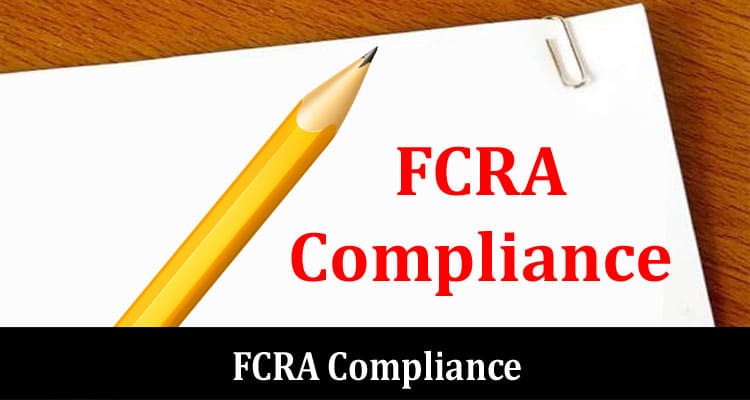FCRA standards are enforced to ensure an employee or an applicant is aware of any information that their employer intends to gain access to and take action based on it. FCRA is particularly of great importance for employers in order to ensure they follow a systematic process when taking any action against an applicant or employee based on a background check.
Fair Credit Reporting Act (FCRA) Compliance Overview
The Fair Credit Reporting Act, known more commonly as FCRA, is a federal law in place to help consumers resolve inconsistencies and inaccuracies in their credit reports.
While it was enacted in 1970, its scope has been expanded to include other reports about consumers, such as background checks for the purpose of employment screening in 1996. This essentially means any employer conducting a background check through third parties must comply with the laws of FCRA.
Why FCRA Matters More to Employers
While FCRA is also applicable to several situations where background checks are conducted, such as tenant screening, it specifically matters more to employers for a number of reasons. Since an employer has access to a candidate’s information upon conducting a background check, the FCRA offers protection to consumers.
Background checks generally include a person’s employment and education-related information, health care sanctions, motor vehicle reports, professional licenses, and criminal history. Therefore, when gaining access to such information about a candidate, both the employer and the third party conducting a background check are required to comply with the FCRA.
The Equal Employment Opportunity Commission (EEOC) and the Fair Credit Reporting Act (FCRA) enforce federal nondiscrimination laws that are applicable to consumer reports. Both EEOC and FCRA come under the Federal Trade Commission.
What is an Adverse Action Notice?
An adverse action notice is given to an applicant or an employee by the employer when they decide not to hire the candidate or fire or demote the employee on the basis of the background information obtained from a consumer report (employment background check).
This is one of the FCRA guidelines that demand an employer who decides to take an adverse action based on the background check to send an adverse action notice.
What Does the FCRA Require for Background Check Companies?
The FCRA has set forth certain rules and regulations to be followed when running an employee background check. Practically, what it means for an employer and the third-party agency or organization is that a proper procedure must be followed to ensure all the reports are accurate and are in compliance with state and federal guidelines for reports.
Further, it is the employer’s responsibility to disclose to the candidate that they intend to run a background check and have consent in the form of written authorization.
Employers are required to take FCRA compliance very seriously as not doing so can result in a penalty. A consumer can sue the employer when they fail to meet these FCRA requirements. As proof of the matter, an estimated 400 FCRA lawsuits were filed in 2016.
Employer Responsibilities Before and After Taking Adverse Action
Before taking adverse action against a candidate or an employee, the employer is supposed to inform them about conducting an employee background check (as already mentioned). There are three key aspects of the enforcement guidance of EEOC that the employer should keep in mind when running a background check, which is as follows-
- The employer should only obtain and consider background information that is relevant to employment and is deemed necessary for the purpose of business. While previous employment details and education-related information are clearly necessary for the employer to check the validity of the information provided by the candidate, any criminal record accessed through a background check should be relevant to the candidate’s employment in the organization. This implies that the employer should be able to justify that the criminal conduct might pose a risk as the employee undertakes the duties of a particular position.
- The green factors should be used in a targeted screen where there is a criminal record associated with the applicant. The applicant can be excluded when one or more of the following criteria are met- gravity and nature of the conduct or offense, the time passed since the offense or the completion of the sentence for an offense, and the nature of the job being sought or already held.
- The employer must perform an individualized assessment for justification of firing, demoting, or not hiring an applicant with a criminal background.
Once the consumer report has been obtained by the employer and they intend to take adverse action, they should follow the following process-
- The applicant should be notified about the adverse decision being considered and provide a copy of a report with a federal summary of rights. The applicant should be given an adequate amount of time to initiate a dispute.
- The employer should not make any decisions during this specified time allotted to the applicant to initiate a dispute.
- When the employer makes an adverse decision after the allotted time has passed, they must notify the applicant and inform them about the action being taken along with the CRA’s contact information. They should also specify that the decision has not been taken by the CRA and that they can initiate a dispute and can get another copy of the report in the form of a statement.
What are the Penalties for Violating FCRA Standards
When an employer or a third party violates the FCRA standards, it results in a penalty or statutory damages that can range from $100 to $1000, and they may also be held responsible for the actual losses and attorney’s fees of the applicant or employee.
Since violating the FCRA standards can attract severe penalties, it is in the employer’s best interest to follow all the FCRA guidelines and keep the applicant or employee informed about the background check as well as any adverse action being taken.


